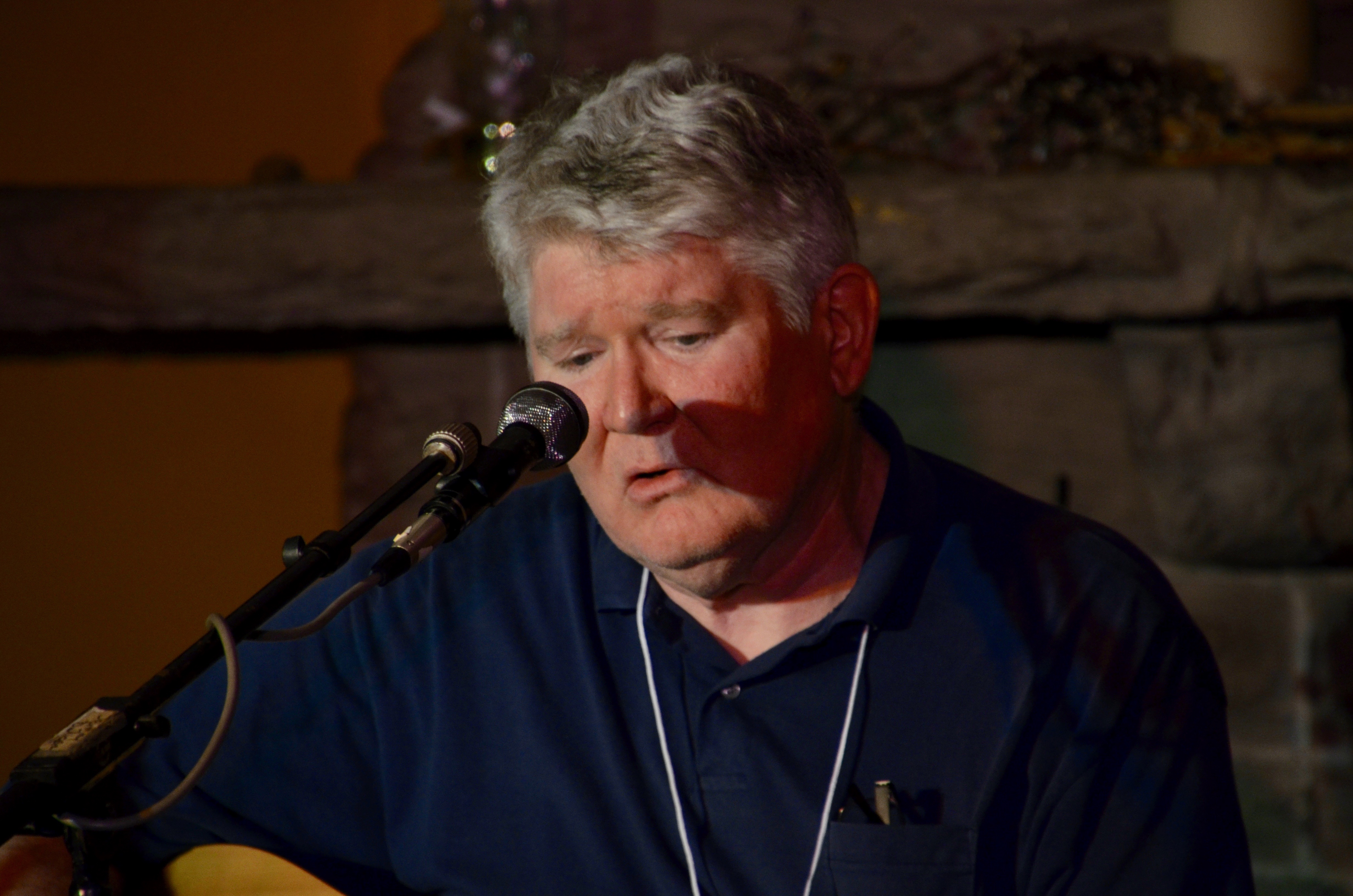I would fly from the woods’ low rustle
And the meadows’ kindly page.
Let me dream as of old by the river,
And be loved for the dream alway;
For a dreamer lives forever,
And a toiler dies in a day.
—John Boyle O’Reilly
Sean Tyrrell, the singer-songwriter from the West of Ireland, has performed in Philadelphia twice—including a memorable set with fiddler Tommy Peoples at the 2001 Philadelphia Ceili Group Festival. (You can hear it on the group’s commemorative festival CD, “Toss the Fiddles.”)
I’ve missed his local appearances, but I ran into him a few years ago on a trip to Ballyvaughan, County Clare. He was playing his regular weekly session at Green’s, a pub roughly the size of a confessional booth in the center of town.
After a strong set of the traditional stuff, Sean started noodling around on the guitar, getting set to play something soft and slow. It took me a few notes before I recognized the tune: “South of the Border (Down Mexico Way),” the peppy 1939 standard written by Jimmy Kennedy and Michael Carr, and a big hit for singers as diverse as Gene Autry and Frank Sinatra.
Tyrrell’s version was a different tune altogether. Gone was the hokey Latin syncopation. And that mental image of Dorothy Lamour with a bowl of fruit on her head? Forget that. This was a far more wistful treatment than ever I’d ever heard.
Tyrell’s great gift lies in his ability to interpret songs—even those, and perhaps especially those, that have otherwise been done until you’re sick of hearing them.
“I have often said that I don’t regard myself as having the greatest voice,” Tyrrell said in a phone interview from Seattle, “but that (his interpretive skill) is something that I do have. There aren’t that many bad songs, really, but there are a lot of bad singers. What I mean by that is, people who just don’t care about the lyric. You can take a song like “The Black Velvet Band” or “The Wild Rover,” and if you really read those lyrics, you’ll find that they’re great songs, but they’ve just been done to death.”
One example is Tyrrell’s take on the standard “Coast of Malabar.” It could be a cheesy or sentimental tune, he admits. It has certainly been performed in that way. But, he said, “If you really look at the lyrics, it’s about a man who has fallen in love with a woman who’s a different color. And he can’t bring her back to England, because she’s the wrong color. I just wanted to get that across.”
Tyrrell’s other great passion, for some time, has been poetry, including the works of the well-known—Oscar Wilde, for example—as well as some other poets who are not as well known, such as Louis MacNeice.
The poet with whom Tyrrell is most closely identified is John Boyle O’Reilly. O’Reilly was a member of the Irish Republican Brotherhood, captured and jailed, and subsequently transported to Australia. He escaped to Boston, where he became editor of the Irish newspaper, The Pilot.
Tyrrell’s interest in setting poetry to music stems from a chance encounter in New York City with a book called “100 Years of Irish Poetry,” edited by Kathleen Hoagland. “It’s still available, actually,” he said. “About 50 percent of my repertoire for years has been from poems from that book that I set to music. One of the poems was was John Boyle O’Reilly, ‘Cry of a Dreamer.’ I recorded it on my first album, and gave it (the album) that title.”
Tyrrell now performs five of O’Reilly’s poems set to music in a one-man show, also entitled “Cry of a Dreamer.” The show also includes music and poetry from a number of other diverse sources, including Wilde, as well as Bob Dylan and John Lennon. The show is meant to document O’Boyle’s life.
“He was an amazing human being,” said Tyrrell. “The magnitude of his soul just amazes me.”
You’ll get a chance to see the show here in Philadelphia on Saturday, May 17, at 8 p.m. at the Philadelphia Irish Center. The show is sponsored by the Philadelphia Ceili Group. The show has earned standing ovations in just about every city on the current tour where Tyrrell has performed it.

